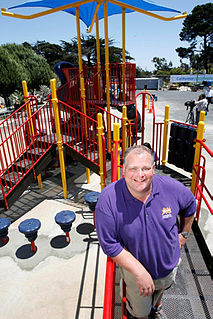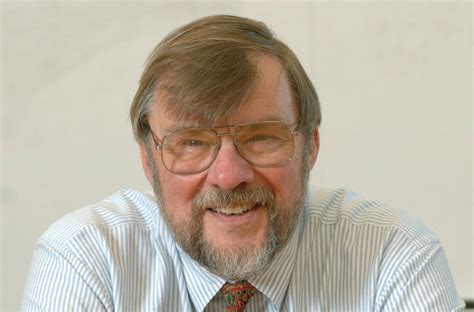A Quote by Ken Robinson
Most great learning happens in groups. Collaboration is the stuff of growth.
Related Quotes
Collaboration is important not just because it's a better way to learn. The spirit of collaboration is penetrating every institution and all of our lives. So learning to collaborate is part of equipping yourself for effectiveness, problem solving, innovation and life-long learning in an ever-changing networked economy.
I tell my kids all the time, 'I want you to be a great athlete, I want you to be great academically, I want you to achieve a lot of things, but mostly I want you to be a great person. If none of the other stuff happens and you're a great person, then I'm okay with anything else that happens in your life - that's the highest standard.'
Our education system is increasingly embracing a black-and-white way of thinking, in which 'learning' and 'play' are diametrically opposed. 'Learning' is the serious stuff that happens inside a classroom and can be measured via multiple choice questions and a No. 2 pencil. 'Play' is frivolous, fun, and worst of all, optional.
Wisdom in groups emerges as a product of commitments we make with ourselves and to each other. These stances are not abstract rules but tangible practices that must be renewed each time we are in groups. They are essentially commitments and attitudes that foster collaboration and positive collective action.
Hackman's paradox: Groups have natural advantages: they have more resources than individuals; greater diversity of resources; more flexibility in deploying the resources; many opportunities for collective learning; and, the potential for synergy. Yet studies show that their actual performance often is subpar relative to "nominal" groups (i.e. individuals given the same task but their results are pooled.) The two most common reasons: groups are assigned work that is better done by individuals or are structured in ways that cap their full potential.




































